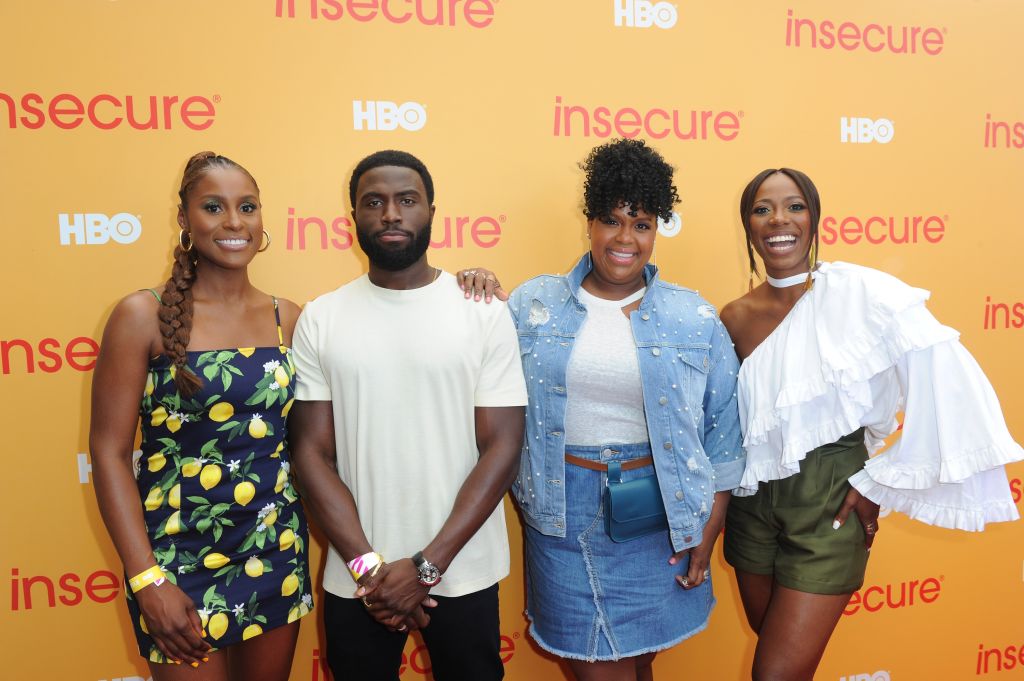
Source: FilmMagic / Getty
On a recent episode of This Is Us, Randall (played by Sterling K. Brown) wanted to apologize to his sister, Kate, for a fight they’d just had. Randall, known for going overboard in trying to right wrongs, grabbed a flight that night that took him from New Jersey to Los Angeles. The next day, he had to deal with an emergency that took him right back to New Jersey the same evening
“I hope you used points,” Toby said to him as he heard about the first flight. That was the only reference to the amount of money it would take to pull off such a flight on such short notice, especially since Randall hasn’t had a job in months and his wife just lost her job.
Why wasn’t there more of a discussion about how much this costs? How much money has Randall had in savings this whole time? When is Randall going to get a damn job?
These are the things that I think about when I watch TV shows, and unfortunately, so many shows focus on cleverly orchestrated plot twists and coincidences. But the most prescient stories on TV are the ones that reflect our most direct concerns, and there’s no bigger concern for millennials—especially Black millennials—than trying to figure out how to pay the bills. That’s why shows like Insecure and Atlanta are so special and hit such emotional notes with their audiences. They focus on the realest issue their audiences face: being broke as hell.
Insecure’s central battle is between Issa and brokeness. She doesn’t just quit jobs and live off of her savings for years. She drives Lyft, crashes on couches, and agonizes over money. Tell me: when was the last time you saw a main character spend minutes of a show trying to get their credit score figured out? That’s what Issa did in season three. There are some fans who have expressed frustration with the season and the lack of forward movement that came from the eight episodes within, but that’s sort of the point, isn’t it? Being broke is psychologically and, thus, physically debilitating. That’s what happened to Lawrence in season one (and Issa later).
In Atlanta, Earn is depressed in large part due to feeling neutered by his inability to earn a living for himself. A whole episode in season one is about him waiting for his little paycheck to clear his checking account and the suspense of him losing money before he ever gets to see it. On the surface, this is innocuous television, but for people who have lived it, this is triggering as hell. After all, Black household income is projected to be exactly zero dollars by 2053.
In short, shows like Atlanta and Insecure speak to the same middle America problems that the revival of Roseanne got praised for, but these shows aren’t recognized as such because “middle America” is a thinly-veiled coded phrase that stands to mean “white America.” If Insecure and Atlanta were white, they’d be celebrated for representing underrepresented segments of the American population who slip through the cracks of elitist Hollywood.
The beauty of shows like Atlanta and Insecure is that they don’t even give a sh*t about how they’re received outside of Black culture. They’re speaking directly to us and know our stories and want to tell those stories. But this isn’t a new phenomenon. The most beloved Black shows revolve around the very Black experience of accumulating livable wages—from Good Times; to the season-long quest for Martin to get a job and what it meant for him as a husband; to the cast of Living Single trying to pay rent every month. The Black experience of keeping the lights on is, at the same time, a uniquely Black and universal struggle. Shows that embrace this reality often leave indelible marks in the culture.
That isn’t to say that shows that depict Black financial stability don’t have a place in the annals of cultural relevance—The Cosby Show, Black-ish and Fresh Prince Of Bel-Air all share the characteristic of well-off families. They’re important as aspirational pieces of art, as well as a reflection of the Black upper-class that does exist in America. The latter two, especially, maintained the need to present the realities of Blackness in America that transcend economic differences.
Being Black and living is a revolutionary act. And revolutionary acts are never boring. Shows like Atlanta and Insecure embrace that fact and present Black life that is drenched in the drama that comes from just living—which means the struggles of finding a warm meal or a place to sleep. It’s a labor of love for these shows and a perspective that we as viewers appreciate as we navigate the treacherous American lands of staying out the negative on our checking accounts.
















